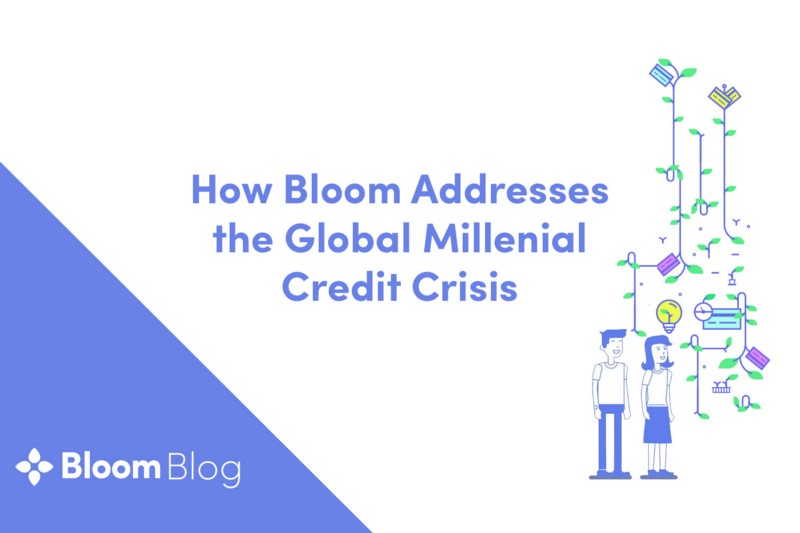How Decentralized Credit Scores Address the Global Millennial Credit Crisis

Millennials are shying away from credit. They aren’t taking out credit cards, many don’t understand how the credit system works, and an entire generation faces a scoring hurdle. Banks aren’t able to issue loans to millennials for mortgages if they don’t have a score. Many aren’t able to build up enough credit to open a business as an increasing percentage have a “thin” credit profile.
In the United States, 63% of adults ages 18 to 29 do not own a credit card, the highest of any generation.
Obtaining a credit score typically requires loan history. The most common method of obtaining a first line of credit is by opening up a credit card.
Historically, borrowers have been well-educated on how to obtain credit. They knew you need to open a credit card, grow credit history, and maintain an active entry in the credit system. Yet, this is not the case with millennials.
Why are Millennials Opting Against Credit?
It’s commonly understood by millennials that credit card debt is bad. Used irresponsibly, debt IS bad. However, this same debt is needed to prove creditworthiness to eventually get a sizable loan for a home.
“One of the reasons why millennials are afraid of credit cards is because many of them watched their parents get in trouble during the Great Recession,” says Beverly Harzog, author of a number of books on managing credit.
Data from the Federal Reserve indicates that since the 2008 financial crisis, millennials have seen the sharpest decline in the proportion who hold credit card debt compared to previous generations of young Americans, according to the New York Times.
“It’s pretty clear that young people are not interested in becoming indebted in the way that their parents are or were,” said David Robertson, publisher of The Nilson Report, a newsletter about the payment industry.
Under the current credit system, however, millennial behaviors rooted in fiscal responsibility may set themselves up for trouble later in life. Taking out a home mortgage or a loan for a car, for example, proves challenging without a substantial credit history. In fact, the millennial homeownership rate has fallen at a faster rate than other age groups. The Consumer Expenditure Survey reveals that the share of spending on rent increased in the last decade.

How Does Bloom Address This?
Most credit systems rely almost entirely on historical debt repayment information and therefore cannot easily accommodate users who are new to credit.
In the age of modern computing, the model of using a single score to evaluate a customer’s ability to pay back a loan no longer makes sense.
The inevitable pitfalls of such a system made headlines in 2014 when a bank turned away former Chairman of the Federal Reserve Ben Bernanke when he tried to refinance his mortgage.
Under the conventional paths for establishing a credit score, millennials who demonstrate smart spending and debt-avoiding behaviors do not get recognized for their financial responsibility. This poses a problem when millennials are the largest generation in the US workforce, and their spending and borrowing habits underpin the country’s economic health.
BloomID lets users establish a global, federated identity with independent third parties who publicly vouch for their identity information and legal status. BloomIQ is a system for reporting and tracking current and historical debt obligations that are tied to a user’s BloomID.
Through these mechanisms, Bloom enables lenders and partners to access and share additional metrics such as:
- Cell phone payment history
- Utility bill payment history
- Bank account / financial data
- Alternative credit information
- School tuition payment history
- Insurance payment history
- Cable TV / Internet payment history
- Rent Payment
As part of this mechanism, meta data can be reported on factors including:
- The size of the payments
- The on-time payment percentage
- The average amount of debt outstanding
- The types of accounts connected to pay the bills
- The number of on-time payments
Of course, not all information is available in all markets. Local regulations, access to partners, and data availability may limit the scale of the data accessible to the Bloom network. This is why growing a global ecosystem at the protocol level is fundamental.
Centralization and data portability is a key mission of Bloom. Central bureaus continue to exacerbate these problems. Most central bureaus keep data hidden in internal silos, preventing lenders from getting a clear picture of a borrower. Bloom breaks down these silos and combines all available information into one standard mechanism.
The result of this shift? Bloom generates a complete, reliable, credit profile without the requirement of taking on debt. For a generation of millennials without credit cards, a solution like Bloom is a way out.

Millennials aren’t fitting into the current ecosystem, alternative data is the answer.
63% of adults ages 18 to 29 do not own a credit card, according to a 2014 Bankrate survey. In contrast, only 35% of adults over 30 choose the same.
Among millennials who do have credit cards, a 2016 Experian analysis found that they average 2.02 credit cards and 1.34 retail cards, the lowest among other generations of adults. They also average the lowest credit score of 634. These statistics indicate that millennials suffer low credit scores in part because they are punished for having short credit histories.
Millennials also suffer from common misconceptions around what kinds of credit behavior the current scoring system rewards. For example, financial services company LendEDU found that nearly half of them believe you can improve your credit score by increasing your credit utilization, and more than one-third believe you should max out your card and pay the bill on time. In reality, a high credit utilization rate causes lenders to see you as a big risk and lowers your score as a result.
Another LendEDU survey found that 17% of millennials believe that a late credit card payment won’t affect your score and 6% believe it will even improve your score. Again, the opposite is true: missing a payment would negatively impact your score. But the counterintuitive world of credit scoring does little to mitigate these misunderstandings.
A secure and equitable future
Bloom strives towards a system that is more secure and equitable for those in the credit ecosystem. By bringing credit to the blockchain, Bloom makes credit both portable, inclusive and secure by implementing globally federated, secure IDs which dramatically mitigates the risk for identity theft due to data breaches.
If you’re interested in learning more, please join our Slack or read our whitepaper.


